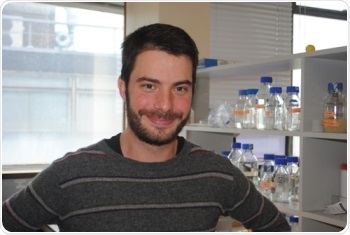Dec 16 2014
University of Leicester biologist analyses fish to understand human aggression
An international research consortium, including a biologist from Leicester, has heard that aggression in young male prisoners can be reduced by treating ADHD.
 Dr Will Norton, from the University of Leicester’s Department of Biology, is part of the Aggressotype Consortium - a large international consortium funded by the European Union consisting of 18 academic and 6 commercial partners.
Dr Will Norton, from the University of Leicester’s Department of Biology, is part of the Aggressotype Consortium - a large international consortium funded by the European Union consisting of 18 academic and 6 commercial partners.
At an international meeting held in Mainz, Germany, the consortium heard from researchers at King’s and Imperial about preliminary results from an on-going treatment study of ADHD in young male prisoners. 20% of the prisoners met clinical criteria for ADHD. After medical treatment with a long acting stimulant medication there was a large reduction in ADHD symptoms.
Aggressotype researchers aim to unravel the biological causes and mechanisms underlying aggression in ADHD and conduct disorder and also investigate how aggression can best be prevented and treated.
Dr Norton is studying zebrafish to investigate pathological aggression. This will help scientists understand the function of aggression-linked genes in the brain as well as allowing better subtyping of aggression and anti-social personality types. The research will also use juvenile fish to develop novel interventions for treating aggression.
Dr Norton, the research lead, explained:
We live in an increasingly violent society and we don’t know why. Aggression is an extremely complex behaviour which is becoming a big societal problem. There are currently very few drugs available to treat aggression and there are often side-effects for those that exist.
This is a really ambitious project, but I am hopeful that by looking at the areas of the brain and genes linked to this type of behaviour, we will develop a better understanding of aggression and how it responds to existing treatments. We will be using both adult and juvenile zebrafish since they are genetic model organisms which may respond in a similar way to drugs as humans.
In their 3-day meeting, the 60 researchers discussed the progress made during a successful first year of their 5-year project, with issues presented covering a wide range of disciplines. In addition to the presentation of the first results of the study in prisoners, a particular highlight was also the contribution of a representative of the European ADHD patient organisation ADHD-Europe, who put out a plea for accurate communication by researchers in both scientific and popular press to avoid stigmatisation of whole patient groups and to provide a clear guide to where resources are needed.
Source: http://www.le.ac.uk/